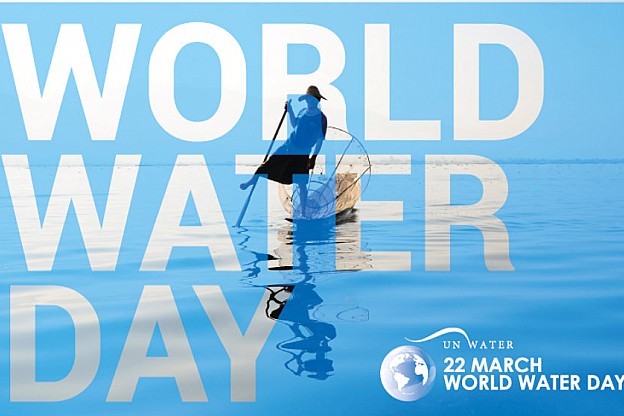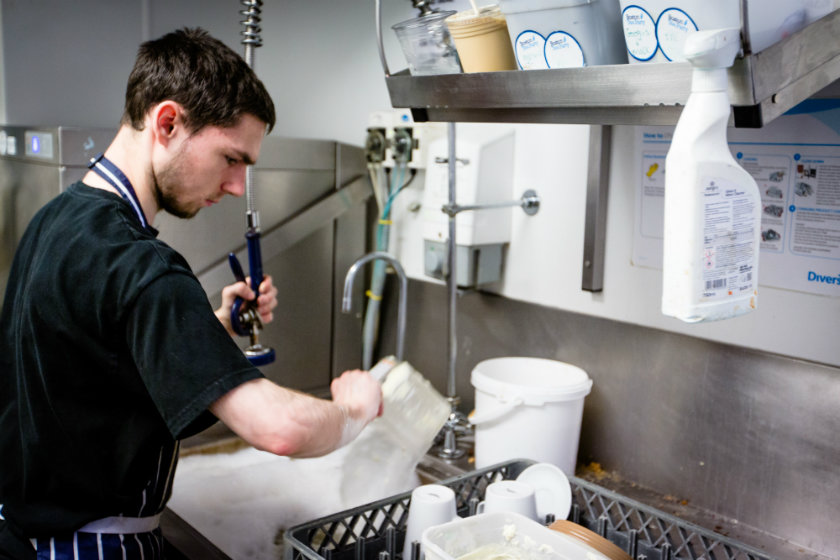UN World Water Day: 22 March 2018
- March 19, 2018
What is it?
26 years ago the UN decided there needed to be more global awareness of the issues. It was decided that 22nd March, 1993 would be the first World Water Day, and has been held annually ever since.
The goal: make sure everyone in the world has access to safe water by 2030.
Every year the UN sets a theme. 2018 is Nature for Water: exploring how we can use nature to overcome water issues in the 21st century.
Environmental damage, with that old devil climate change, is a driving force behind many of the water-related adversities we see around the world. Degraded vegetation, soil, rivers and lakes cause many of the natural disasters such as floods and droughts, and pollution issues to be made worse.
Why should we care?
With 100% of the UK having access to clean water to drink, clean and cook with, it’s sometimes hard to get to grips with a problem that doesn’t seem so close to home.
For basic survival, humans need 20 to 50 litres of clean water every day to ensure their basic needs for drinking, cooking and cleaning. In the UK, we each use about 150 litres a day, including the extra you need for tea, coffee and poaching your eggs!
But, over two thirds of our daily water consumption is imported. No, there aren’t secret undersea pipelines to lakes in Europe, but rather it comes in the form of ‘embedded water’ – water that is used in the production of what we eat, what we wear and many of the other objects we rely on in everyday life. It’s estimated that this brings our usage to over 4,600 litres a day.
Within our landscape, Environment Agency figures show that only 17 per cent of England’s rivers are in good ecological health – a major contribution to this ill health is associated with the production of food and drink. Think fertilizer run off leading to algae overgrowth and the suffocation of the rivers and all the other stuff you learnt in Geography lessons.
So, there’s a lot of reasons why we should all be doing our bit. It goes beyond turning the tap off while you brush your teeth.

What are Boston Tea Party doing about it?
Like almost everyone else, we’re a business that can’t cope without water. It’s in our coffee, tea, used for cooking many of our recipes and we couldn’t flush the café toilets without it. As our cafes get busier, this use is only going to up.
However, we’re of the view that what’s good for the environment is good for us. We’ve considered how our increasing water usage is going to impact on our planet so here’s some of what we’re doing to make sure we only use what we need:
• We’re working on getting all of our toilets on dual flush – only use the water you need. Most of the water usage in our cafes is via toilet flushes.
• Taps are restricted for the job that they do – the one you use for washing your hands uses a different amount to the one we use to clean our blenders.
• We’re quick to fix leaky pipes and dripping taps – we have Automated Meter Technology in our busiest cafes, which tracks water usage and can highlight any strange goings on with usage.
But most importantly is that 80% of our products come from within the UK, and our suppliers are local and organic. Here’s some of the smashing things they do to protect the water systems and preserve its use:
• Frank Water took the decision to stop using plastic bottles for their water which made us sit up and listen. We took them up as a supplier – they do amazing stuff to provide clean water and sanitation in India and Nepal.
• Yeo Valley, who supply our milk, plant clover instead of using chemical fertilizers on their land. This means there’s no risk of harmful chemicals polluting the water system.
• The Severn Project supply our salad – they’re based in Bristol on previously disused urban land. They grow seasonally and have an amazing social impact.
• Devon Rose meats are free from routine antibiotics, growth promoters, pesticides and herbicides. They do other great stuff including hedgerow schemes, heat recycling and zero to landfill, all which help preserve our waterways and water consumption.
Working with and supporting these guys means we can work with the UN’s ultimate goal:
“To improve water quality by reducing pollution, eliminating dumping and minimizing release of hazardous chemicals and materials, halving the proportion of untreated wastewater and substantially increasing recycling and safe reuse globally.”
So, this World Water Day, we’re challenging you to stop and think about the hidden impacts of your purchasing power. It goes bigger than us fixing leaky taps and turning off the garden sprinkler, and really thinking about where our consumables are coming from, and the impact we have on the world.
